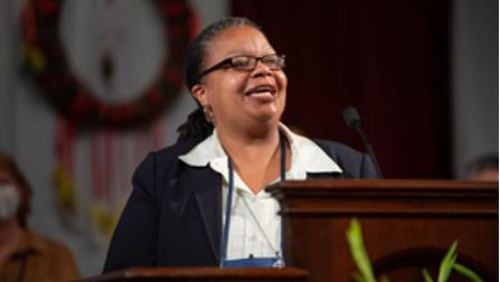The three 2016 Democratic candidates for president participated in a Friday evening forum hosted by MSNBC and held at Winthrop University in Rock Hill, S.C.
The event, billed a first in the nation southern presidential forum, featured Hillary Clinton, Bernie Sanders and Martin O’Malley conversing individually with the moderator, anchor Rachel Maddow. She peppered each of them, individually, with questions on everything from the Keystone XL pipeline and gun control to criminal justice and campaign finance reform.
Each candidate was pressed on questions customized to hit their potential weak spots. O’Malley, registering in single digits in the polls, was asked for his logic in continuing his campaign, Clinton had to answer whether she’s a military hawk and too close to Wall Street, and Sanders was challenged on his record opposing certain gun control measures.
Here are six takeaways:
Bernie’s Southern challenge in focus
One of the first questions to Sanders was about his ability, coming from the mostly white state of Vermont, to sell his ideas to black Southerners.
Sanders is giving Clinton a strong challenge for the Democratic nomination, but only in two states that are overwhelmingly white: Iowa and New Hampshire. Just 8% of black South Carolina Democrats support Sanders.
Sanders said there are “very few members of the Congress who have a stronger record” on civil rights and cited his involvement in early equality battles, including having joined Martin Luther King for his 1963 march on Washington. Sanders said his agenda will ultimately resonate with African Americans, including raising the minimum wage to $15 an hour and investing in education.
Hillary is still answering for Wall Street
Among the first questions to Clinton was about her ties to Wall Street, as a former New York senator, in an election in which concerns about corporate malfeasance and Wall Street greed are tantamount.
Maddow cited financial support she’s gotten from Wall Street executives, including paid speeches for Goldman Sachs totaling more than $600,000 after she left the Senate.
“Anybody who thinks that they can influence what I do doesn’t know me very well,” said Clinton. In December 2007, as the financial crisis hit, Clinton visited the NASDAQstock exchange and “basically said, ‘You guys have got to stop it,’ ” she said.
“People rightly believe the corporations and the powerful have stacked the deck,” she said, also citing her support for ending tax preferences for hedge fund managers.
Keystone lives on as an issue
Clinton announced her opposition to the construction of the Keystone XL pipeline in September. Yet both of her rivals took the opportunity to say she was late to the party. O’Malley directly called out Clinton, while Sanders did so indirectly.
“I said no to Keystone on day one,” said Sanders. “We are fighting for the future of this planet and we’ve got to be bold,” he said, as he moved on to criticizing Republicans.
“Secretary Clinton got there just last week,” O’Malley said earlier in the evening. “Leadership isn’t about following polls,” he said. “Leadership’s about being clear about your principles,” he said.
Is Hillary a hawk or a dove?
Clinton has defended President Obama’s decision to deploy U.S. troops on the ground in Syria for the first time to advise and assist rebel forces combating the Islamic State. She also voted for the war in Iraq and was the only candidate not to make an impassioned case against the decision to invade the country as based on false pretenses.
Sanders drew a clear contrast by saying he opposes the Syria decision.
“I do not want to see us getting sucked into a quagmire of which there may be no end,” Sanders said in opposing Obama’s Syria policy.
When her turn came, Clinton declined to rule out the use of force as commander in chief. “It should always be the last choice, not the first,” she said.
Bernie is trying to show a softer side
Sanders, a candidate who’s probably hewed closer to his economic populist stump speech than any of the others, has faced pressure to show a more human side to voters. On Friday, he took that opportunity.
He was asked what the biggest misconception about him. “People think I am grumpy,” he said. “People think I am too serious,” he said.
He said that he had four children, adding, “But I think what people don’t see is I have seven beautiful grandchildren who are the joy of my life.”
Sanders also warned Maddow not to ask him about his underwear, a reference to aSaturday Night Live spoof.
A war tax?
One of the few new policy ideas that surfaced was O’Malley’s support for a war tax.
While he would oppose reinstating the military draft system, he believes Congress and the American public might be more cautious about foreign entanglements if taxpayers are forced to foot the bill instead of adding the costs to the debt.
“Not enough of us appreciate the degree to which we have put the burden of” war “on the backs of such a small number of people,” he said. Yet, former President George W. Bush “didn’t even have the nerve to ask us to pay for” the Iraq War, he said, citing Republican complaints about the spiraling U.S. national debt.
“You know what, the reason we have the debt is because George bush falsely led us into war,” O’Malley said, drawing cheers.
About the Author




